Road to Recovery
By Deneb Sumbul | Health/Medicine | Published 7 years ago
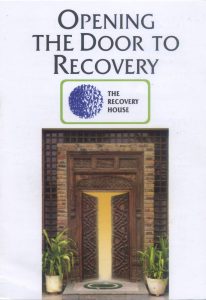
Among a row of residential structures on main Tipu Sultan Road in Karachi, is an elegant 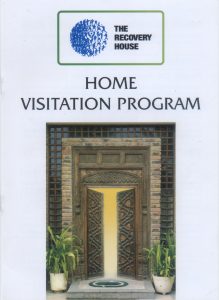 house partially hidden behind old leafy trees. It is a rehabilitation home for persons on their road to recovery from maladies that are both neglected and stigmatised in the country. Persons with various forms of psychiatric illnesses come here, The Recovery House (TRH) — perhaps the only facility of its kind — which devotes all its resources to the rehabilitation, recovery and reintegration, to the maximum possible degree, of its clients back into society.
house partially hidden behind old leafy trees. It is a rehabilitation home for persons on their road to recovery from maladies that are both neglected and stigmatised in the country. Persons with various forms of psychiatric illnesses come here, The Recovery House (TRH) — perhaps the only facility of its kind — which devotes all its resources to the rehabilitation, recovery and reintegration, to the maximum possible degree, of its clients back into society.
“This issue is being addressed in the rest of the world, whereas in Pakistan there is no real concerted effort to deal with mental health. Invariably, the attitude is that of keeping mum. Everyone needs to be brought into the fold and approach mental illness in a methodical manner, instead of shying away from, or being ashamed of it. Why not treat it like any other illness like diabetes or hypertension that requires medication, a protocol, and perhaps a lifestyle change and talk about it freely,” says Shaheen Ahmed, one of the co-founders of TRH, the others being her elder brother Khusro and Khalid Karamat Elley. Currently Shaheen and Khusro are more actively involved as trustees of TRH, while Khalid steps in when needed, though not as a trustee.
She continues, “Even people I know personally don’t want to discuss it or learn about it. There is a social conversation going on — at social events, even weddings — about every single part of our body, but not this part. It is easier for people to speak of all their other illnesses and medications, but when it comes to mental illness, their lips are zipped and they withdraw. Any mentally erratic behavior is explained away as moodiness or black magic or trauma/shock from an unpleasant personal event — anything but a mental illness, which should be investigated like all other illnesses.”
A registered non-profit organisation, The Recovery House is catering to three tiers of the population — those who have the ability to pay full fee for their services; those who need the services but can only afford partial payment, and the third group who cannot afford it at all. People who fall in the second category, pay as much as they can, and the financial aid for the balance amount is sought from community donors by the TRH trustees. People falling in the last group are charged no fee and zakat funds are applied (if mustahiq) to cover the costs of their treatment. “No one is refused,” says Shaheen, as “long as it’s clearly defined that the clients can be rehabilitated and will benefit from our services.”
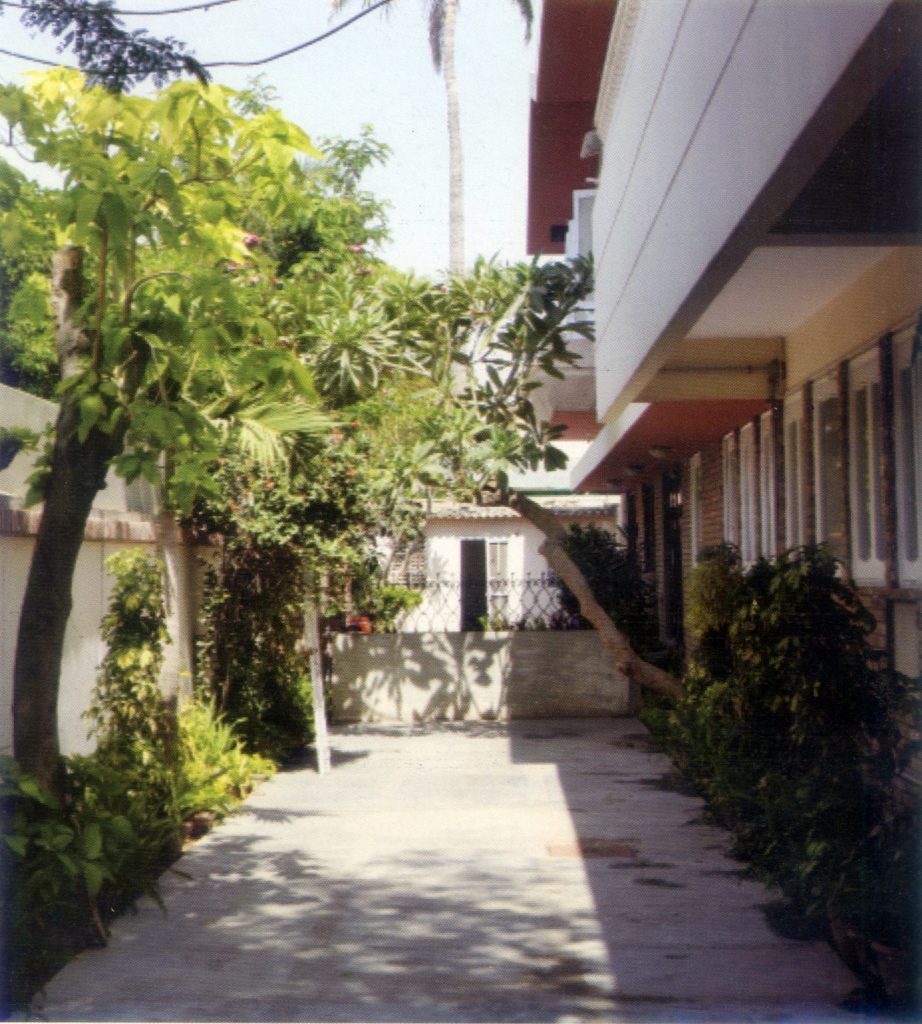
She adds, “We are trying to address the wider population in multiple ways. We have a community outreach project in Shah Faisal Colony led by our Director, Dr. Nazila Khalid, where her team goes twice a week to set up a clinic to cater to local patients and provide free diagnosis, medication and treatment. And soon we will be starting a home visitation programme to lend support to families who are unable to bring their affected family members to any services because of their aggression or non-compliance to medication and are subjected to fear and grave concerns and suffer alone.”
The Recovery House facility is a family start-up by siblings who felt the devastation on a personal level when two of their siblings suffered from a mental disorder and they watched their mother struggle to care for them single-handedly with no support services whatsoever. While Shaheen and both her brothers lived abroad, their mother explored services in Karachi, and even travelled to Lahore and Islamabad in search of a programme or services to find that not even a single mental health facility of any value existed in the country. “She saw people and children in the institutions that were being neglected, mistreated, locked up and even beaten. This was unacceptable to her,” says Shaheen, adding, “So my brothers and I have had a foot on a plane for virtually the last 50 years, shuttling back and forth from the US and UK to Karachi to lend support to our mother — a widow, and the sole caregiver till she passed away at age 85. She was inspirational, dealing with this alone, and she did a brilliant job, even with her limited knowledge and exposure.”
Seven years ago Shaheen and her brothers Khusro, and Khalid, began TRH with a 10-bed rehabilitation facility in a residential house in Gizri, given to them by a friend for use, at no cost, to begin their work. Shaheen furnished the first Recovery House with all her mother’s belongings and also asked others to donate necessary pieces. Friends and family members helped by doing the upholstery, repairs in the house and other odd jobs, and the enterprise was launched without the founders having spent a single penny.
Four years later they were ready to hand back the house to their extremely generous friend and they shifted to a larger rented location at Tipu Sultan Road. Today that houses 18 residential clients, and many more in its day programme. Now Shaheen and Khusro travel to Karachi in rotation, and along with a trained staff, operate the enterprise. Additionally from time to time, visiting consultants conduct training sessions for the staff at TRH.
Over the years, what began as a plan to highlight the issue of mental disorders, has evolved into a psychiatric rehabilitation facility that is breaking ground in introducing a new concept in recovery for the mentally ill in Pakistan. Having personally experienced the disruption for the whole family when a member is mentally ill, Shaheen says, “The tentacles [of such a malady] go much further than can be fathomed; it is so disruptive that you don’t know what will happen one day to the next. It is estimated that 15 to 20 million people in Pakistan today are living with mental illnesses, and there seems to be no plan to address the issue.”
Psychiatric illnesses invariably cause family crises. Questions haunt the family. Parents ask, “Will we be able to go out to work? How will our other children cope?” Those suffering from the affliction sometimes have suicidal tendencies, and many are aggressive, making parents fearful of their own child. “If you multiply one mentally ill person by five or ten, based on the family structure, that is how many people are really affected. With cancer, even with flu, the entire family is affected, but people are able to continue with their lives and if there is somebody to attend to patients, they can be handled. But mental illness is much harder to work with and its effects are more expansive in its reach and devastation,” says Shaheen.
She laments the way the media deals with the subject, saying it is guilty of not playing a productive role. Instead, she maintains, it often sensationalises the issue, showing patients in chains, or locked up behind bars. It is certainly an unarguable fact that mental disorders are usually portrayed in movies as stereotypical horror stories.
One of the innovative steps in the TRH rehabilitation model is the imparting of essential information to the caregivers of mentally ill persons. “We ask the families to partner with us. If we are successful in making our clients well enough to go home and live with their families, the latter have to lend their full support as well, otherwise a relapse is a real possibility. And in such an event, the client will end up coming back, which we work hard to avoid. We need to make our clients’ recovery sustainable through better wellness and recovery management,” contends Shaheen.
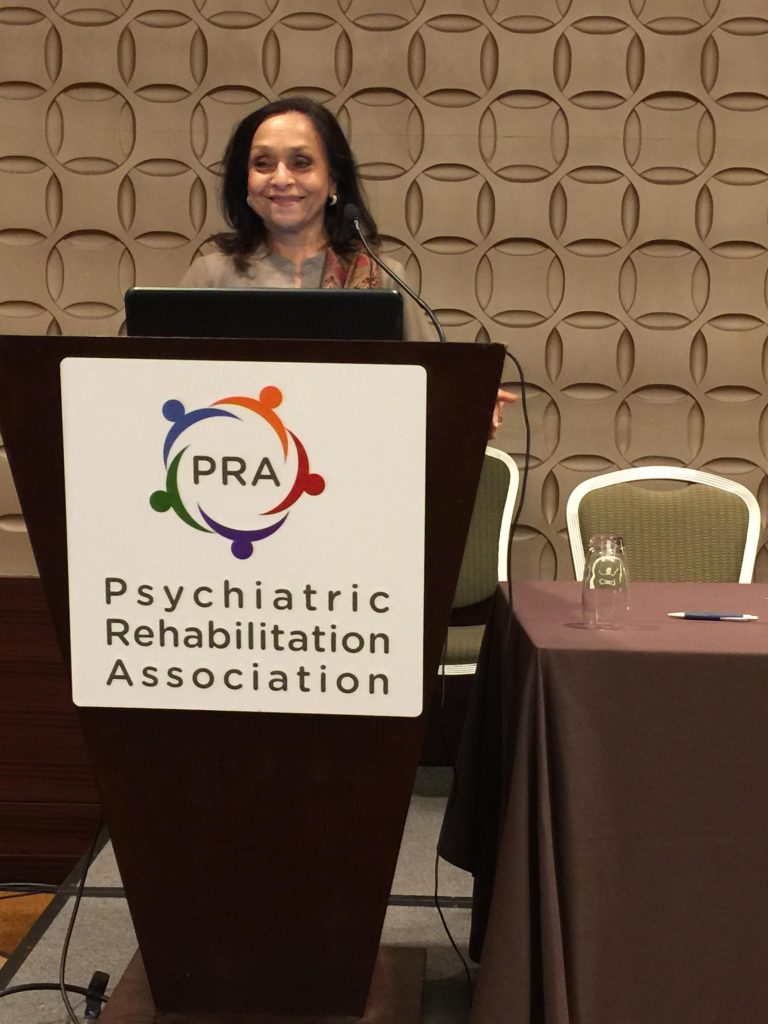
Shaheen Ahmed presenting at a conference in Boston
As part of its education and awareness campaign for families and others, TRH has started holding a series of seminars once a month called ‘meet the expert’ to educate attendees about the specific aspects of mental health. “We invite local experts and professionals to participate by presenting at these seminars. Initially many family members of afflicted people did not want to attend, clearly reluctant to be seen there because “people will find out,” but finally the numbers are growing and at a recent event there were over 60 family participants in the session titled ‘Supporting Your Family Member’s Recovery from Mental Illness,’” says Shaheen. Subsequent events there have been standing room only which is a demonstration of barriers breaking down slowly.
While it works with assorted mental disorders, TRH does not, however, attend to persons in an acute phase of their illness. In such cases, they are referred to hospitals that provide facilities for acute care, for example the Karachi Psychiatric Hospital, Liaquat National Hospital (LNH), the Aga Khan University hospital (AKU), or facilities like the Karwan-e-Hayat. Clients are referred to these hospitals to be stabilised and then referred back to TRH as a step-down facility to be engaged in an individualised rehabilitation programme tailored for their needs. Once stabilised, TRH takes these individuals where they receive specialised, evidence-based sessions and therapies for rehabilitation and are prepared to be reintegrated into mainstream society.
In her effort to build linkages with other related hospitals and institutions and introduce them to the concept of rehabilitation, Shaheen, Khusro and other TRH members have given presentations at DOW University, AKU, Jinnah Postgraduate Medical Centre (JPMC), and other medical institutions, explaining how their organisation works, what they do and how, through coordination, they can work together to show better outcomes. But Shaheen says, it is still an ongoing battle, “Unfortunately, we have to work even harder to bring the wider psychiatric community on board and to get a buy-in from them.”
Shaheen may lack educational qualifications in the field of mental health, but her efforts, commitment and knowledge of psych-care rehabilitation unarguably qualify her for running an institute such as TRH. In addition there are other spin-off projects, which she also oversees. “We have two sister non-profit organisations called Caravan of Life. The Caravan of Life USA (CoL-USA) is based in the States and is an educational and training arm. All TRH’s know-how and knowledge of rehabilitation in mental health or psych-rehab, comes from that.
The other, Caravan of Life Pakistan Trust (CoL Pakistan-Trust), the direct servicing agency, is based in the country and registered as a non-profit and tax-exempt organisation, with TRH as its service project. “We have laid the foundation of the psych-rehab concept, principles and best practices in Pakistan for the first time. Because be it a psychologist, a psychiatrist, or a Ph.D — who are experts in their own fields — they still don’t know what psych-rehab is as it is a new and emerging field.”
In the US, Shaheen’s role is to get affiliations with universities and psych-rehab experts on board, and because of her efforts, many in this field in the USA are familiar with the mental health situation in Pakistan and what Shaheen calls ‘the Pakistan project.’ She says, “Faculty members from universities in the US travel to Karachi to lend us their expertise. They say that we are making mental health history in Pakistan.”
These faculty members include Dr. Veronica Carey, Assistant Dean of Diversity, Equity and Inclusion for Drexel University; Carlos Pratt of Rutgers University; Barbara Granger of Granger Consultation; Michele Blankenberger of Thresholds of Chicago; Dr. Tony Zipple of Seven counties behavioural health; and John Mays of Trilogy Health, among other trainers and consultants who have donated thousand hours of consultation in person and via skype to assist CoL Pakistan in bringing psychiatric rehabilitation services to TRH.
And Shaheen has herself given presentations to, and invited leading figures, from the department of psychiatry of medical institutions to conferences and seminars that TRH periodically holds. But so far, the response from them has been underwhelming, to say the least.
However, one of the most respected names in psychiatry, recently retired Dr. Abul Faizi, the ex-Chairman, Department of Psychiatry and Director of Patient Relations, AKU, is on the Trust’s board of directors and familiar with the TRH programme. In his opinion, “People over here, including psychiatrists and high-flying psychologists, always have a conflict with each other. It is not necessary that what a psychiatrist says is going to be a fact, but he has the upper hand in Pakistan — not the psychologist. Whatever the case, these medical practitioners are more interested in promoting their private practices [than exploring other avenues of therapy that could be beneficial for their patients].”
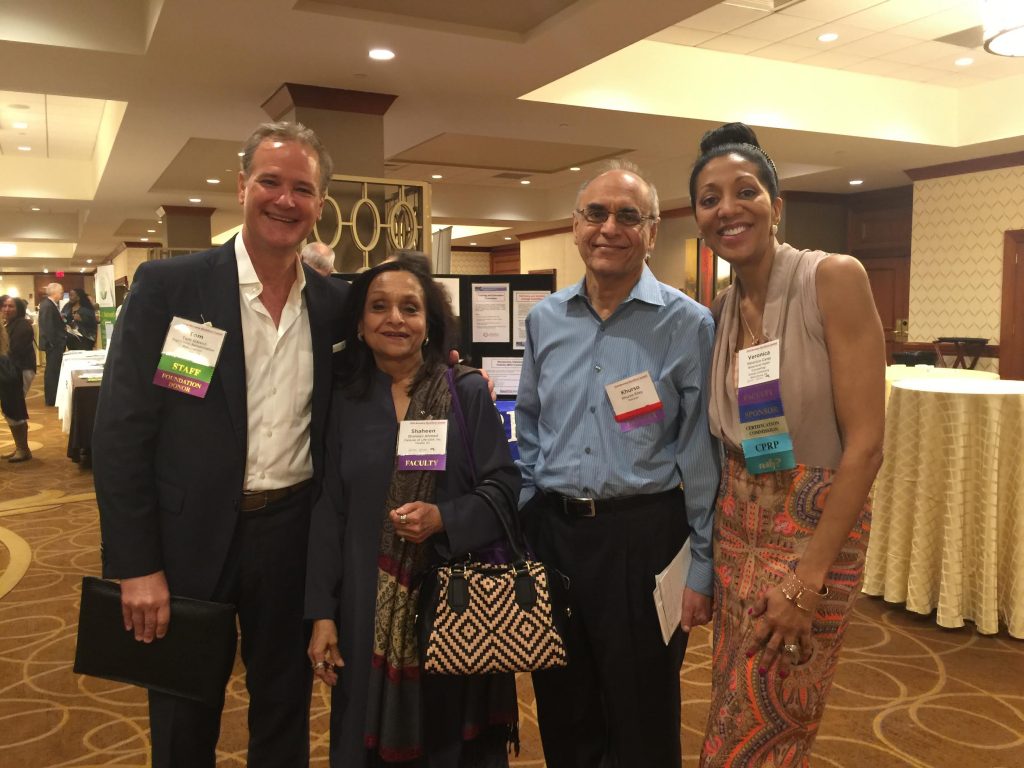
Shaheen and Khusro with Dr Veronica Carey and Tom Gibson, President of the US Psychiatric Rehabilitation Association
Dr. Faizi continues, “Whatever we know here about psychiatric evaluation is largely from trainers in the discipline in the US faculty. Only last week an expert, Sarah Fletcher, Director of Intensive Outreach Services, Trilogy Inc. in Chicago left after conducting a 30-day training for 10 of The Recovery House personnel.” In her view “Shaheen and her brothers have developed effective and quality programmes where they have been able to draw on collaborations with agencies such as Trilogy Behavioural Healthcare and Universities such as Rutgers and Drexel to assist with remaining at the forefront of mental healthcare and evidence-based practices. The commitment to the idea that recovery from mental illness is possible is clearly evident in the way that the staff has dedicated themselves to the mission, the formation of programmes, and the continuous detail that is put into integrated care for the individuals and families they serve.”
CoL-USA has become an approved provider of trainings by the Psychiatric Rehabilitation Association of the US — the certifying body. A one-year curriculum has been developed, with an entire US faculty teaching it at TRH, to prepare the healthcare providers and other participants for an exam to become ‘psychiatric rehabilitation practitioners.’ At the end of this course, a ‘Certificate of Psychiatric Rehabilitation Practitioner’ (CPRP) is awarded to successful trainees.
“We sent invitations to all the psychiatric institutions, inviting them to send candidates to participate in this unique opportunity which would strengthen their own programmes as well as benefit the persons they serve,” says Shaheen. “We did not get a single response. My interest is in the rehabilitation of people living with mental illness, but we cannot do it alone. We reach out to everyone. Incidentally, Dr. Uzma Umbareen, an active member of the Pakistan Medical Association serves as the Medical Director at TRH and has been an integral part of this project since its early days.”
Shaheen explains further, “The issue is that the concept is new. In the field of psychiatry, Pakistan functions on the traditional medical model — treatment through medication only and nothing beyond. The same model was used in the USA and elsewhere 60 years ago. Rehabilitation is a relatively new concept in medical years, even in the West. The recovery model has developed over the last 50-60 years but has not made it to Pakistan until now. We have taken it upon ourselves to bring it into the country, but the psychiatric community is still [loyal only to] the medical model.”
Shaheen continues, “This is a pilot project and our psych-rehab model is evolving. We will continue to conduct training sessions for every component of the model through CoL-USA and CoL Pakistan Trust.” Meanwhile, Shaheen is continuously lining up resources — namely expertise from the US — for TRH. She along with her US partners present the work of The Pakistan Project at international conferences, and she says, it has intrigued several others who want to not only learn more about the project, but offer their help and expertise as well. “Sadly, there is little response from the desi professional community” says Shaheen. “Do you know how rich we are in terms of the physician community in the US? My husband is a physician — a cardiologist. When I approach Pakistani professionals to help us with this project, they look me up and down dismissively, perhaps because of the lack of abbreviations after my name, whereas the American counterparts are swayed by my passion and commitment to make a difference and feel compelled to lend support.”
She adds, as a case in point, “Just last week Professor Carlos Pratt, who is the head of the Department of Psych-rehab at Rutgers University in New Jersey gave us a Skype session. When the trainers can’t come personally, we conduct training through Skype.” And, Shaheen continues, “I am very clear in my vision. I want our model to scale up. There are only about 350 to 370 psychiatrists in the entire nation. They are still working on the medical model. This entails repeated visits by patients to them for prescription medication. That is not enough. Once persons with mental illnesses participate in rehabilitation programmes and improve, they may have less need to return to the psychiatrists for repeated visits. The thing is, when patients relapse, they will need a psychiatrist anyway. Many are worried about management of the symptoms, but what about the quality of life of their clients? People think that their diagnosis is their life and we say it is more than that. It is to do with paradigms.”
The proposed plan for TRH now is to take their healthcare model out for a walk. If participants in the training sessions TRH offers are successful, they will be the first batch of CPRP practitioners in Pakistan — professionals in a new field, a new career path who do not necessarily have to come from a medical background. The minimum qualifications required are a Masters degree in a human services field, and the current batch of trainees includes psychiatrist, psychologists, nurses, MBAs, marketing people, etc.
“We are breaking ground in so many different ways. Our concentration is on developing a workforce in this new field and once they are in place, not only will the Recovery & Rehabilitation model be complete and followed, it can be replicated with the best, evidence-based practices. Not by following second rate and third-rate ways, because then it becomes a disservice. So we are setting a high standard,” contends Shaheen.
And after seven years in service, TRH has begun to receive referrals, mostly from the AKU, a few from LNH and other institutions. It is an acknowledgement — validation from some among the psychiatric community that rehabilitation services such as those provided by TRH are filling a critical need.
Says Shaheen, “We cannot guarantee how far we can take a client, but we are going to do our utmost to take him/her as far as they are willing and able to go. Even if we are only able to get him beyond this door, let us get him there to begin with. We are willing and eager to work with mentally unwell people, but progress and success begs that their families are also willing to work with us. That is our goal. There are no guarantees. But can the quality of life of persons living with mental illness be improved? Yes it absolutely can.”
And if further validation of the work TRH is doing were needed, it comes in the words of Dr. Veronica Carey, “It would have been very easy in 2013 to fall prey to all the reasons why I should not go to Pakistan. Now, I cannot wait to return. I have trained and presented in Karachi for three years since 2013; three years of wonderful memories educating eager professionals to learn about psychiatric rehabilitation. The Recovery House is one of a kind! It will strengthen families and lessen stigma, as well as offer chances for persons with a psychiatric disorder to prosper in the community.”
The writer is working with the Newsline as Assistant Editor, she is a documentary filmmaker and activist.


